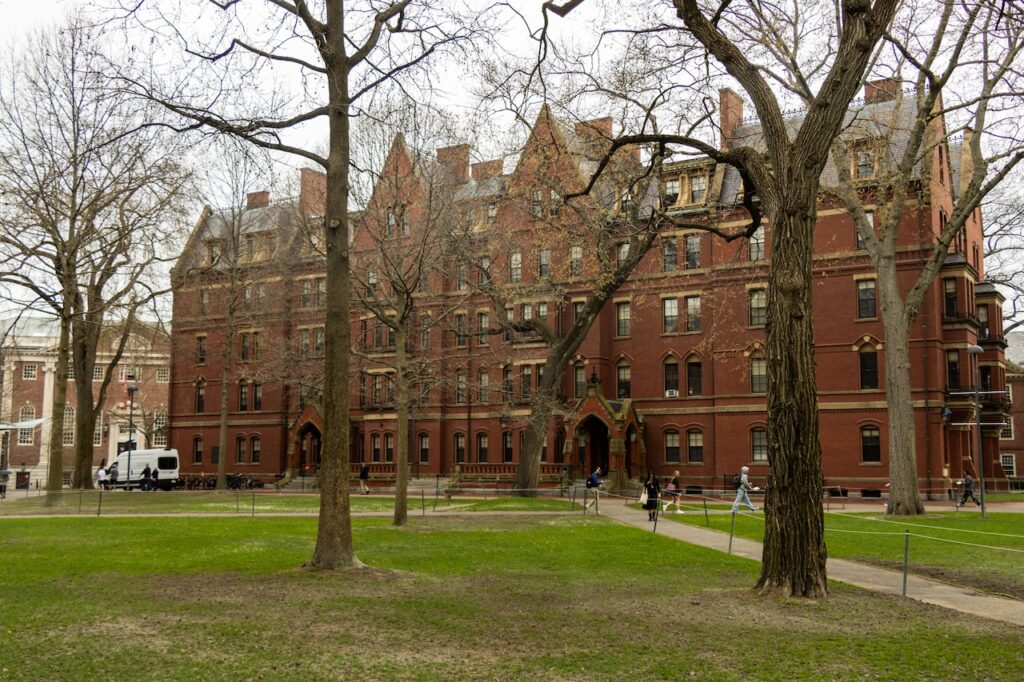Less than 24 hours after the Trump administration revoked Harvard University’s ability to host international students, the institution is suing the federal government again.
The university has filed a complaint, and a motion for a temporary restraining order will follow.
“We condemn this unlawful and unwarranted action. It imperils the futures of thousands of students and scholars across Harvard and serves as a warning to countless others at colleges and universities throughout the country who have come to America to pursue their education and fulfill their dreams,” said Harvard’s President Alan Garber in a Friday letter.
The revocation comes after the federal government gave Harvard University an ultimatum in April to submit detailed records about foreign students or lose the certification.
Read more: ‘Deeply scary’: Legal experts reel over Trump’s ‘brazen act’ against Harvard
Garber said the university responded to the Department of Homeland Security’s requests as required by law.
U.S. Secretary of the Department of Homeland Security Kristi Noem said it was unsatisfactory.
Harvard will have another opportunity if it provides detailed records about international students within 72 hours, according to Noem’s letter.
About 27% of Harvard’s undergraduate and graduate students are international, according to 2024 to 2025 data.
“For those international students and scholars affected by yesterday’s action, know that you are vital members of our community. You are our classmates and friends, our colleagues and mentors, our partners in the work of this great institution. Thanks to you, we know more and understand more, and our country and our world are more enlightened and more resilient. We will support you as we do our utmost to ensure that Harvard remains open to the world,” Garber said.
What is the certification being revoked?
The Student and Exchange Visitor Program, also known as SEVP, allows higher education institutions to issue visa application forms to prospective international students after admitting them. The forms are used to apply for a visa to enter the United States.
The certification requirements include that the school is operational and instructing students, has the necessary facilities and adequate finances to operate, provides instruction to a degree or objective and meets state requirements to operate, according to the Department of Homeland Security website.
Read more: Trump is threatening to block international students from Harvard. Is that legal?
Institutions are recertified every two years, but can be evaluated at other points in time if they have information suggesting that it isn’t complying with regulations.
If the certification is taken away, an institution isn’t allowed to enroll international students. Current students would have to choose between transferring to another institution, leaving the U.S., or changing their immigration status, according to the ICE website.
An example of the certification being stripped occurred at Herguan University in California in 2016 after its CEO pleaded guilty to providing fraudulent documents to the Department of Homeland Security, according to East Bay Times.
A growing fight
Harvard has been in a battle with the federal government since April. There has been a wave of federal research grant terminations at Harvard University, in addition to a $60 million in multi-year grants,$450 million cut and a $2.2 billion freeze.
U.S. Education Secretary Linda McMahon has also told the institution that the federal government would be barring Harvard University from acquiring new federal grants while the university continues to refuse to comply with the administration’s demands for change on its campus.
Harvard President Alan Garber wrote in a letter to U.S. Secretary of Education Linda McMahon that they share the same “common ground,” but the university “will not surrender its core, legally-protected principles out of fear.”
Garber pushed back on the administration through a lawsuit in April. The institution argues that its constitutional rights had been violated by the government‘s threats to pull billions of dollars in funding if the school didn’t comply with demands for an overhaul.Following the $450 million announced cuts, the university amended its lawsuit.
“No government — regardless of which party is in power — should dictate what private universities can teach, whom they can admit and hire, and which areas of study and inquiry they can pursue,” the suit reads.
Due to the federal cuts, Harvard announced that it was committing $250 million of “central funding” to support research impacted by suspended and canceled federal grants.


